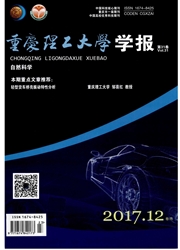

 中文摘要:
中文摘要:
关系型交易和内部权力配置作为重要的公司治理安排都将对企业的避税决策产生影响,这一观点虽被广泛接受但缺乏经验证据的佐证。笔者以2008—2014年的A股制造业上市公司为研究样本,实证发现:随着与供应商/客户关系型交易比重的提升,公司的税收激进水平越严重,表明企业避税行为越会受商业战略的影响;高管控制权的增强会进一步强化关系型交易与公司激进避税行为的正向关系,揭示企业的财务决策可能蕴含了强权高管的自利性动机。进一步的研究发现,当公司面临更强的市场竞争压力和拥有较低的多元化程度时,关系型交易对企业激进避税的促进作用更为显著,不过高管控制权原有的正向调节效应却受到明显弱化。笔者的研究结论为当前有关优化利益相关者共同治理模式以及加强管理层财务决策监督的政策导向提供了经验启示。
 英文摘要:
英文摘要:
As important corporate governance arrangements,both relationship-based transaction and internal power distribution would have more or less influence on the firm's tax avoidance. Though widely accepted,it is still lack of empirical evidences. Based on the data of A-share listed manufacturing companies from2008 to 2014,the empirical study shows that: as the proportion of relationship-based transaction with suppliers / customers rises,firm's tax aggressiveness behavior could be interpreted as an indication of the influence of business strategy upon firm's tax evasion decision; enhanced executives' control rights would further strengthen the proportionate relationship between the aggressive tax avoidance and the relationship-based transaction,revealing that corporate financial decisions may contain selfish motives of powerful executives. Further study indicates that relationship-based transaction can further boost firm's tax aggressiveness when the company is facing stronger market competition and lower degree of diversification,yet the original positive moderating effect from executives' control power would be significantly weakened. The results of this study provide valuable policy guidelines and theoretical enlightenment for the optimization of stakeholders' co-governance mode and enhancing the supervision of CEO's financial decisions.
 同期刊论文项目
同期刊论文项目
 同项目期刊论文
同项目期刊论文
 期刊信息
期刊信息
